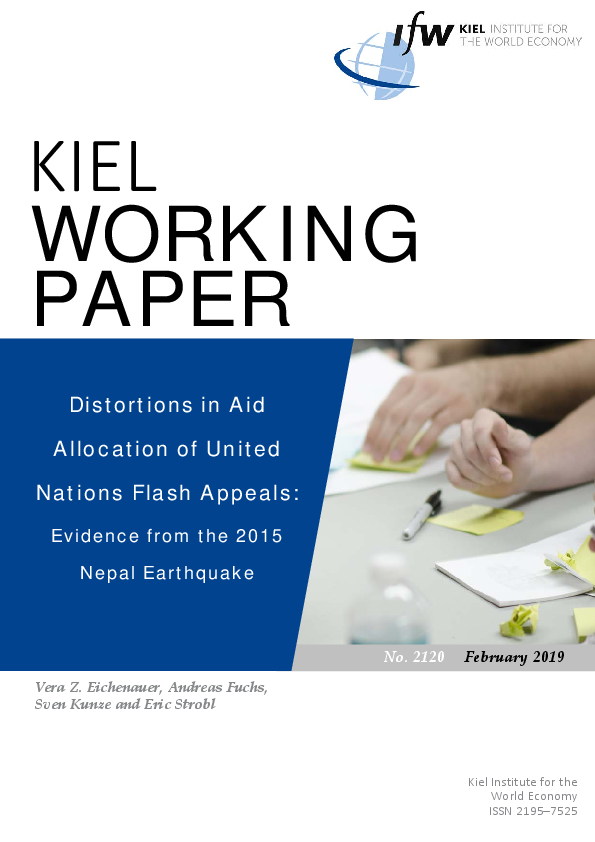Journal Article
Distortions in Aid Allocation of United Nations Flash Appeals: Evidence from the 2015 Nepal Earthquake
Autoren
Erscheinungsdatum
DOI
10.1016/j.worlddev.2020.105023
JEL Classification
Schlagworte
Wohlfahrtsstaat
Schwellen-& Entwicklungsländer
Asien
We examine the role of local need and various distortions in the design and implementation of United Nations flash appeal triggered in response to the destructive 2015 Nepal earthquake. Specifically, we investigate the extent to which the allocation of this humanitarian assistance follows municipalities’ affectedness and their physical and socio-economic vulnerabilities, as rapidly reducing suffering is the intended goal of flash appeals. We then analyze potential ethnic, religious, and political distortions. We alternatively consider the proposed project number, the proposed financial amount, and the subsequent funding decision by aid donors. Our results show that aid allocation is associated with geophysical estimates of the disaster’s destructiveness, but shows little regard for the specific socio-economic and physical vulnerabilities conditional on destruction. It is worrisome that the allocation of the flash appeal commitments favors municipalities dominated by higher castes and disadvantages those with a greater distance to the Nepali capital Kathmandu.





